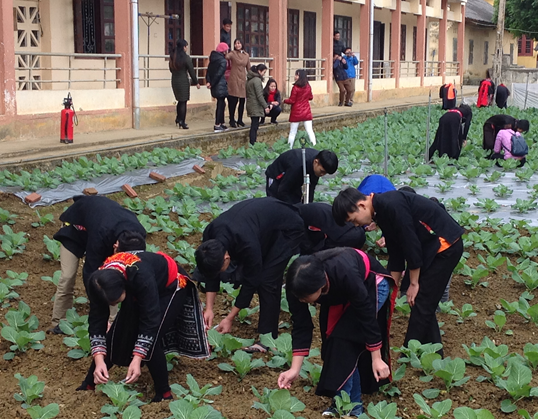 |
ICERD believes that schools act as community centerpieces. First and foremost, schools provide necessary and responsive educational materials and programs that feed the community knowledge to help them thrive. Schools should also provide opportunities for intergenerational and multicultural exchange of knowledge and experience- not only between parents, teachers, and students, but also among students, farmers, village elders, merchants, and other community members who can actively participate in an cooperative learning process. By creating integrative agriculture-based curriculum frameworks in cooperation with local governing authorities and individual school administrators, ICERD supports these avenues of learning and provides students with a cohesive and comprehensive learning experience. |
Example of supporting boarding school: Students were trained and practiced to improve the knowledge and skills on ecological agriculture such as agro-biodiversity conservation and use, composting, bio-bedding, biological control, production of botanical pesticides, vegetable production and crop-livestock integration to strengthen nutrient cycling within farms. Agriculture products produced by students are supplied for the student's daily meals and the remains were sold to the market, and the proceeds were used to build the student's fund.


